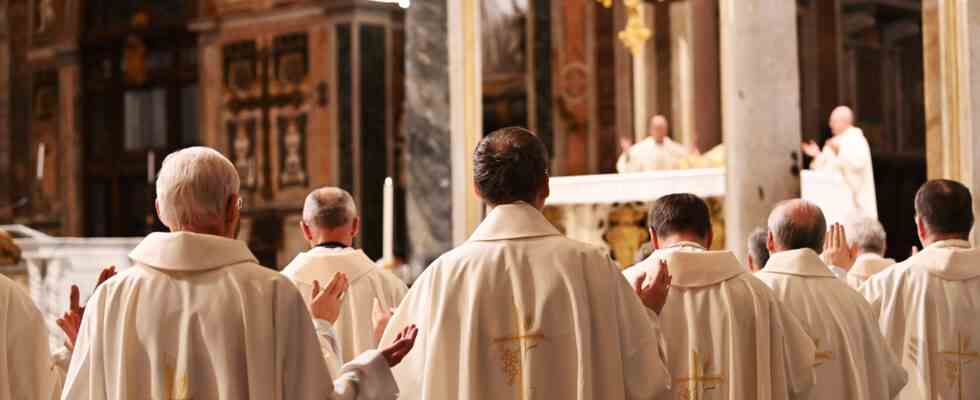Status: 11/19/2022 3:26 p.m
Power in the church, women in ordained offices and the Causa Woelki: During their trip to Rome, 62 German bishops spoke about many controversial issues. Bishop Bätzing drew a mixed balance.
The chairman of the German Bishops’ Conference sits in front of the international journalists with a relaxed face. He was satisfied, quite exhausted and a little tired. His feelings are mixed, says Bishop Georg Bätzing.
“I’m going home with a real sense of relief because we’ve named issues and no one can say they haven’t heard about it or haven’t been able to speak up,” said the Catholic dignitary. “But I’m also going home with a certain concern, because I can’t estimate what dynamic this dialogue with the synodal processes will develop in the future.”
Opinions differ widely
Everything was on the table, the controversial synodal path in Germany was the focus. It was about the division of power in the church, about the admission of women in ordained offices, about a different way of dealing with sexuality and partnership.
During their multi-day visit, the 62 bishops spoke with high-ranking representatives of the Vatican authorities, with cardinals and with Pope Francis. It became clear that opinions differed widely on important theological questions. In a joint communiqué from the Holy See and the Bishops’ Conference, high-ranking Curia cardinals criticized the methodology, content and proposals of the Synodal Path.
The dialogue continues
Bätzing named the red lines, such as the question of women’s ordination: “There is a very clear perspective up here. This question is closed.” The basic text of the synodal path does not state that it is not closed. “But we say it goes further. It doesn’t help, it’s there, so it has to be worked on. And we ask for arguments to be heard.”
It is therefore important that the dialogue continues. He is confident, says Bätzing. The Pope himself has started a worldwide synod, believers from all over the world can bring in their questions and opinions.
Unthinkable in Italy
The Vatican journalist Franca Giansoldati from the daily newspaper “Il Messaggero” sees the debate north of the Alps as a laboratory: “From Italy we are watching what is happening in Germany.” In Italy it is unthinkable to be able to have such a fundamental, so focused and so important debate on certain issues, said Giansoldati. “I’m thinking, for example, of the issue of women.”
The situation in the Archdiocese of Cologne was also discussed during the visit, says Georg Bätzing. The situation had become increasingly unbearable, both for Cardinal Rainer Maria Woelki and for the faithful. The Archbishop had submitted his offer of resignation to the Pope, but the Pope has not made a decision for months.
Bätzing: New ways necessary
Despite all the different views between the Curia and the Church in Germany, the basic line is clear, emphasized Bishop Bätzing. The church in Germany is not going its own way and it will not make any decisions that would have to be made in the context of the universal church.
“But the church in Germany wants and must provide answers to the questions that the faithful are asking,” said Bätzing. Because the uncovering of the abuse has so shaken trust in the church that new paths are necessary. Repeating the old, according to Bätzing, is no way out of this crisis.
Mixed results after the bishops’ visit to Rome
Elisabeth Pongratz, ARD Rome, 11/19/2022 2:41 p.m

